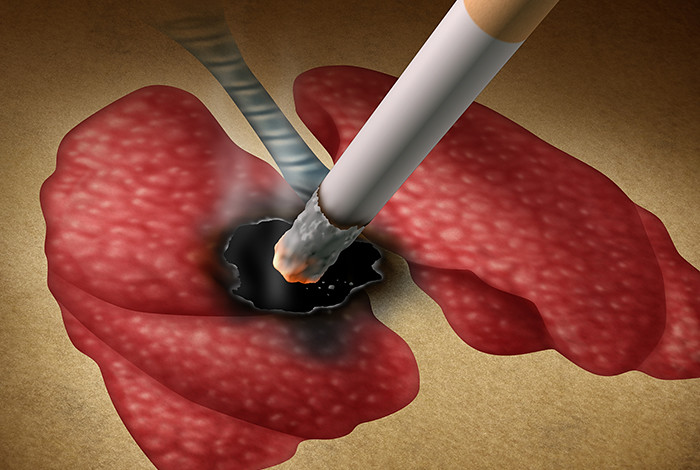Smoking damages DNA

Tobacco smoke contains more than 7,000 chemicals including over 70 known to cause cancer. This study demonstrates that smoking increases cancer risk by causing somatic mutations that both directly damage DNA and increase the speed of an internal molecular clock.CREDIT: Dreamstime
Smoking not only causes cancer but also permanently changes, or mutates, the cells that are exposed to tobacco smoke. That’s the takeaway from a recent study by Los Alamos National Laboratory and the Wellcome Trust Sanger Institute.
“This study offers fresh insights into how tobacco smoke causes cancer… even if you stop smoking, these mutations are there—they are not reversible,” says Laboratory biophysicist Ludmil Alexandrov, noting that with lung cancer, for example, tobacco smoke directly reaches the lung, and the carcinogens in tobacco bind to DNA, which causes mutations, which in turn causes cancer. “Even if you just start smoking for a bit, the genetic material of your cells will be scarred for your lifetime.”
The findings were based on a genetic analysis of 5,243 cancers, including 2,490 from smokers and 1,063 from patients who said they had never smoked tobacco cigarettes.
“Our research indicates that the way tobacco smoking causes cancer is more complex than we thought.” says Mike Stratton, joint lead author from the Wellcome Trust Sanger Institute. “This study of smoking tells us that looking in the DNA of cancers can provide provocative new clues to how cancers develop and thus, potentially, how they can be prevented.”
The Lab’s Employee Assistance Program offers a tobacco cessation program to provide education and counseling for employees and their dependents as they overcome nicotine dependence. The American Cancer Society also offers information about quitting tobacco.

A new study allowed researchers to quantify the effects of smoking on different organs of the human body. For example, subjects who smoked a pack of cigarettes a day for a year acquired 150 new DNA mutations in every cell in their lungs, which increased the risk of getting cancer. Credit: Wellcome Trust Sanger Institute.






